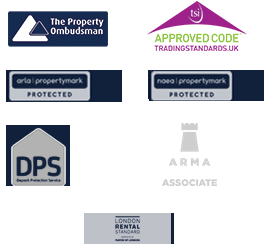Online brands: a word from our peers
We’ve spent the last few months assessing the various factors at play in what is a challenging property market for buyers, sellers, agents and investors alike. With multiple concerns such as the global recovery from the financial meltdown in 2008, the onerous levels of stamp duty payable since late 2014, and the barely believable chaos since the referendum was announced in 2015 and Brexit confirmed in 2016, the market has been on the ropes and suffering. However in the past two to three years another factor has been at play in disrupting the once so reliable waters of UK property. Online agents have been the talk of the town. Sky-high share prices for brands such as Purple Bricks and Emoov have seen new challenges to traditional offerings. We asked four of our closest colleagues in the industry what they thought of the online agency phenomenon, and what the real trends are as the hubris dies down:
Marc Wiehe of Winkworth:
Online brands – they are not agents, they are brands – are proposing a subscription model and hardly anything else. They have individuals or very small teams covering vast areas of the housing market, leaving many clients feeling deserted in their hour of need, whereas traditional agencies have highly concentrated clusters of advisors providing critical analysis and focused local expertise. For online brands it’s all about winning the subscription fee – the registration – and that’s usually where the service finishes. The inexperienced seller is then left on their own to navigate their sale and deal with their potential buyer and often the chain breaks down because of this, causing further frustration in an already difficult market. It is confusing for sellers across the board, and I’d be interested to know the truth about how instrumental the online brands have been in making a slow market into a stagnant market. You can point at the crisis, you can point at stamp duty, and you can point at Brexit, but what about this new factor where sellers are suddenly asking if the ‘online revolution’ will enable them to save thousands on fees? This is a dream world. The real issue is that there are no cohesive industry standards. Proper regulation, where online brands would have to be 100% transparent about how many properties they are actually successfully selling, is the only way to protect consumers from the kind of claims being made. Until this happens, or until the industry rallies together against nefarious business practices that fleece young families of their cash, consumers will keep dreaming about a free lunch and that will continue to have a flattening effect on the market.
Bertie Russell of Russell Simpson:
As an agency whose reputation is built on repeat business and word of mouth we have never had a shop front in our 40 years of business. In keeping with modern terminology, this means we have been a ‘hybrid agency’, using both online and traditional techniques, since the dawn of the internet, which we started using some time ago to market our services and our client’s homes, and to develop our business. It is nothing new! I suspect the online property brands that survive will eventually become hybrid agencies of sorts. In my opinion online agencies have perfected the art of marketing themselves to customers without necessarily having the customer’s needs at the core of their objectives. Online agencies create their revenue through a subscription model with most charging their fee on listing rather than on sale which disincentives the company or individual from completing the main objective of selling the property. At Russell Simpson, we believe that in order to complete this goal successfully we require a full team of well trained and knowledgeable people to carry out the traditional tasks of valuation, marketing, viewing, negotiation, managing the transaction and in most cases assisting the buyer and seller alike through a complex process which usually is highly unfamiliar and emotionally testing. At present digital agencies are offering a fee at a cost of 5-10% of traditional costs but they are also offering a service that is 90-95% less effective with an enormous quantity of sellers being left with unsold properties resulting in the ultimate goal not being achieved. The customer’s needs must be placed at the centre of the equation. Online agencies have underestimated the emotional connotations around buying a home, particularly surrounding higher value property transactions. These are not simply financial or legal transactions and they never will be. Because of this we believe people will remain at the core of residential property, while updating their skill set and knowledge with digital technologies to improve the service for the customer.
Karim Bazzi of Homes One:
We see online property brands as being in start-up phase. They don’t know what they are here to do yet. They think they are agents but they’re not, they simply don’t have the manpower, experience or expertise… in the end, I suspect online property brands and traditional agents will merge and create a new hybrid model that has both dynamic technology and substantial teams of experts as standard. At present I suspect the onliners are selling very little real estate in central London, and perhaps only at the bottom end of the market. This is sad as consumers are presented with a very different story, and it is often young families working on tight budgets who are affected most. Paying £1000 to an online brand is pretty steep if they don’t actually sell your home. I believe it is better to get the result you want and then pay a commission… what needs to change is that technology could potentially remove a lot of the work involved, if there were proper, cohesive regulations and industry standards. This could reduce the price of commissions as the administrative load would be less and the process could be quicker. However I still believe that above a certain level, experts are needed to help buy and sell homes, as the price points fall into the once-in-a-lifetime categories. And no one wants to compromise such a significant investment. At present we are seeing hubris, and vastly inflated share prices of these online brands that are based on paying listing subscriptions rather than actual performance. Once people realize that it may well be worth paying 1 -2% for an expert we will see a return to the previous model, or a new solution emerge which consolidates the tech brands with the traditional. Either way I embrace any change within the context of integrity and transparency… and I suspect the online property revolution has someway to go with both.
NVP comments:
At NVP we have always believed in traditional values, and as our website shows we rate handshakes over clicks any day. We also believe that online property brands are not online agents. Agents provide very tangible savings and expertise to their clients, especially in the mid-top tiers of the market, and the difference we make to people’s experience of the home-buying and home-selling processes can be life changing. Online brands are not providing this service. They are positioning themselves as doing the same, however the reality is they are playing a very different game to us – a different sport in fact. They advertise homes, but they don’t market and sell homes, at least not intensively which is what is required to compete. The media has not quite realized this yet, and when they do the narrative will shift and people looking to buy or sell their home will realize that they want a) less work to do not more, and more importantly b) the difference an agent makes can put five figure sums in their back pockets… and sometimes six or seven, and all for a small percentage of the deal value. Small teams of property experts cannot cover vast areas of the market like some online brands are claiming – rather medium to large teams are needed in order to comprehensively cover small locales. We can’t see technology changing that, at least not in our lifetime. When this much is at stake, people want to know that they are working with people, rather than data-driven robots with no grasp of emotional intelligence. Buying a home is an emotive thing as much as it is financial, and for these reasons you cannot discount real experience and expertise. Alongside all this we embrace technology, as it works arm in arm with the unique service and rapport our team has with our customers. It is here to support the provision of expertise and value, not to replace it.

 Knightsbridge
Knightsbridge Chelsea
Chelsea Kensington
Kensington Belgravia
Belgravia











